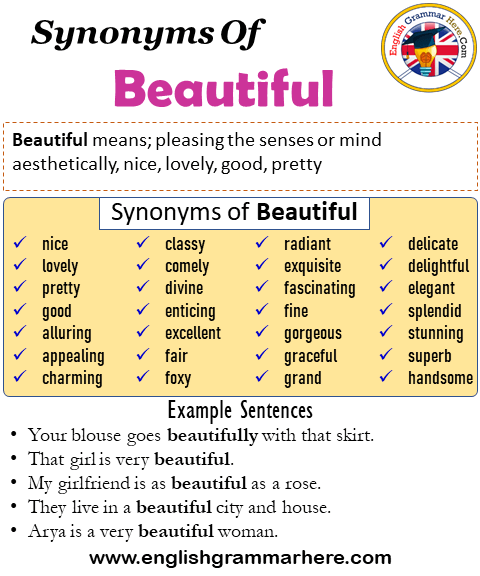
Rather than over-rely on one particular word, you can draw from similar words to keep your compositions fresh.įor example, if you are writing about an intelligent professor, you could describe her within a paragraph as smart, sharp, and insightful as opposed to identifying her as smart three times.


Synonyms add to your writing by broadening your vocabulary and your ideas. Our goal in this post is to ensure you can identify and draw upon synonyms when you want or need to, which brings us to our closing question: Why Are Synonyms Important? You can probably think of lots of other synonyms if you put your mind to it. Whether you are aware or not, you probably use synonyms each day. Although synonyms can occasionally sweeten your writing, they shouldn’t be added to recipes. While less common, these usages create an association or a resemblance between two different things.Īlso note that English speakers may sometimes confuse synonym with cinnamon because the words are homonyms, meaning they are pronounced similarly but differ in meaning. For instance, someone could write increased droughts have become a synonym for climate change. Note that a synonym can sometimes be used as a metaphorical noun. (To find synonyms when you need them, you can search in a printed or online thesaurus.) Each of these word choices can suggest a particular trait depending on the context, but they generally mean the same thing. Although joyful is perhaps more specific about a person’s mood, the words are nearly interchangeable.įor another example, consider kind, nice, and friendly. So let’s get right to it: What is a synonym? The Meaning of SynonymĪ synonym is a word that either has the same meaning as another word or a use and association that is close to that of another word.įor example, happy and joyful are synonyms.

Have you come across the word synonym and not been sure what it means? Or do you have somewhat of an idea of the definition but nothing specific enough to provide an example? If so, this post can help.


 0 kommentar(er)
0 kommentar(er)
